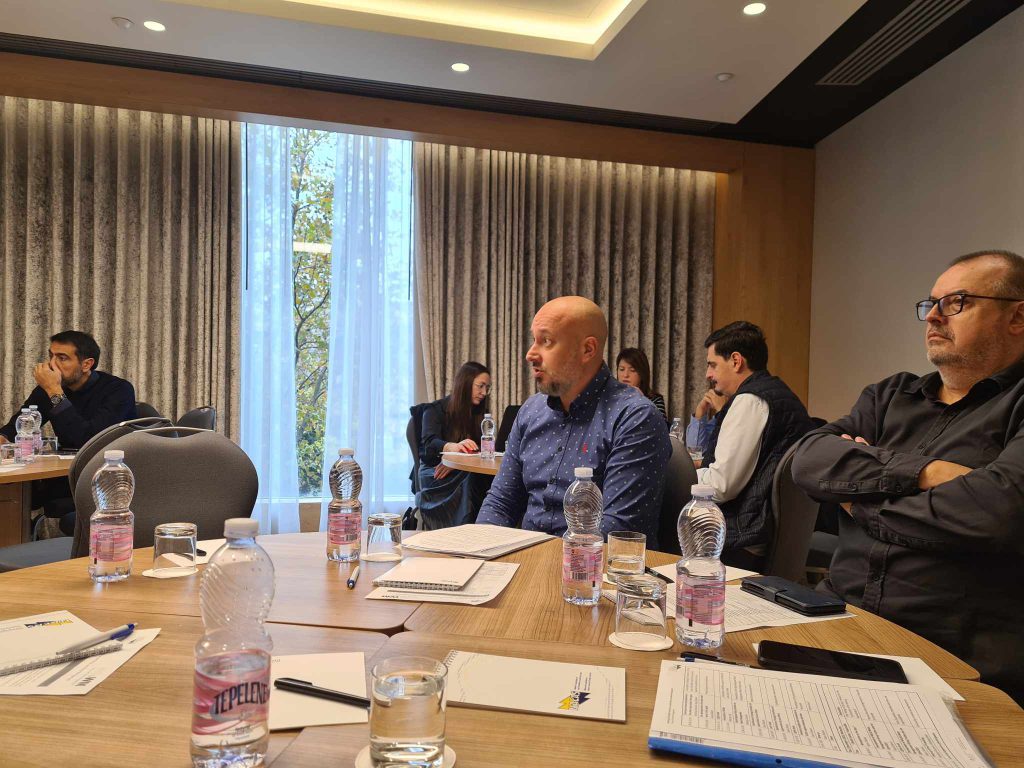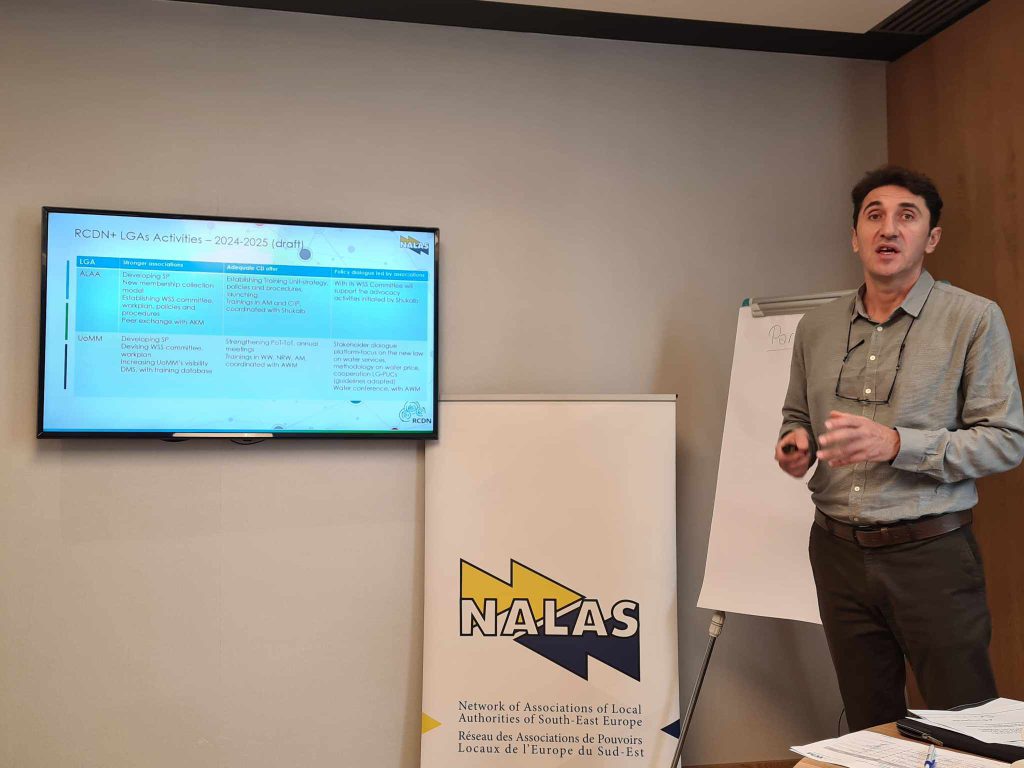
A meeting of the NALAS’ Group on Water Management, part of the Task Force on Solid Waste and Water Management took place on 5 and 6 December in Tirana, Albania. Organised within the Regional Capacity Development Network for Water and Sanitation Services (RCDN), this meeting focused on strategic planning and planning the Task Force’s involvement and activities in RCDN+.
Each member of the Group, representing the national Local Government Association (LGA), presented the state, current developments and evolving trends in the water and sanitation services sector in the respective economy, in light of NALAS’ policy recommendations for the LGAs in the SEE region, enabling the group to identify burning issues that can be tackled by NALAS at regional level. This influenced the development of a plan of activities of NALAS’ Group on Water Management for the period 2024-2025, including the identification of regional research and advocacy topics.

The members of the group were informed about the RCDN+ approach and activities and identified priorities, potential joint efforts and contribution to RCDN+ regional advocacy.

“NALAS’ Working Group on Water Management is an important part of NALAS’ Task Force on Solid Waste and Water Management that can provide a valuable contribution to RCDN+, especially via regional advocacy, as well as in establishing and strengthening LGAs’ sectoral committees”, said Mr. Miodrag Kolic, NALAS Project Officer. “This meeting resulted with an ambitious action plan and we are looking forward to see the results of its implementation”, concluded Mr. Kolic.
***
About RCDN+
The overall impact of RCDN+ is increased effectiveness and efficiency of APUCs and LGAs in Western Balkans that contribute to better service provision towards and by their members, the public water utilities and municipalities, ultimately allowing to reach a large population with equitable, safe drinking water and sanitation services in line with the EU Acquis Communautaire (chapter 27).
Four outcomes will contribute to the achievement of the overall impact: The APUCs and LGAs are capable to perform the organisational functions in line with their mandate (outcome 1 – association development). They are capable to respond to the CD requests of their members (outcome 2 – CD products and CD delivery) and to advocate for the interest of their members and being recognised by competent national agencies (outcome 3 – advocacy and policy dialogue). Regional services add value to the APUCs’ and LGAs’ member services in the 6 Western Balkans countries (outcome 4 – regional services and digital learning).